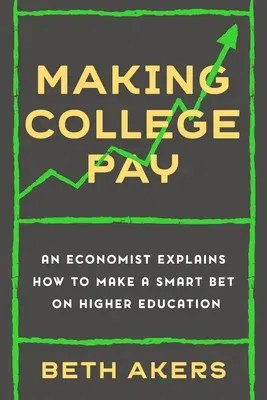A leading economist makes the case that college is still a smart
investment, and reveals how to increase the odds of your degree paying
off.
"Full of easy-to-understand advice grounded in deep expertise and
research."--Martin West, William Henry Bloomberg Professor of Education,
Harvard University
The cost of college makes for frightening headlines. The outstanding
balance of student loans is more than $1.5 trillion nationally, while
tuitions continue to rise. And on the heels of a pandemic that nearly
dismantled the traditional college experience, we have to wonder: Is
college really worth it?
From a financial perspective, says economist Beth Akers, the answer is
yes. It's true that college is expensive, but once we see higher
education for what it is--an investment in future opportunities, job
security, and earnings--a different picture emerges: The average college
graduate earns an additionalmillion dollars over their career (compared
to those who stopped their education after high school), and on average,
two- and four-year schools deliver a 15 percent return on
investment--double that of the stock market.
Yet these outcomes are not guaranteed. Rather, they hinge upon where and
how you opt to invest your tuition dollars. Simply put, the real problem
with college isn't the cost--it's the risk that your investment might
not pay off.
In Making College Pay, Akers shows how to improve your odds by making
smart choices about where to enroll, what to study, and how to pay for
it. You'll learn
- why choosing the right major can matter more than where you enroll
- the best criteria for picking a school (hint: not price, selectivity
or ranking)
- why working part-time while enrolled might set you back financially
- why it's often best to borrow, even if you don't have to
- the pros and cons of innovative alternatives to traditional college
- how to take advantage of new, low-risk financing tools
Full of practical advice for students and parents, Making College Pay
reminds us that higher education remains an engine for opportunity,
upward mobility, and prosperity.

